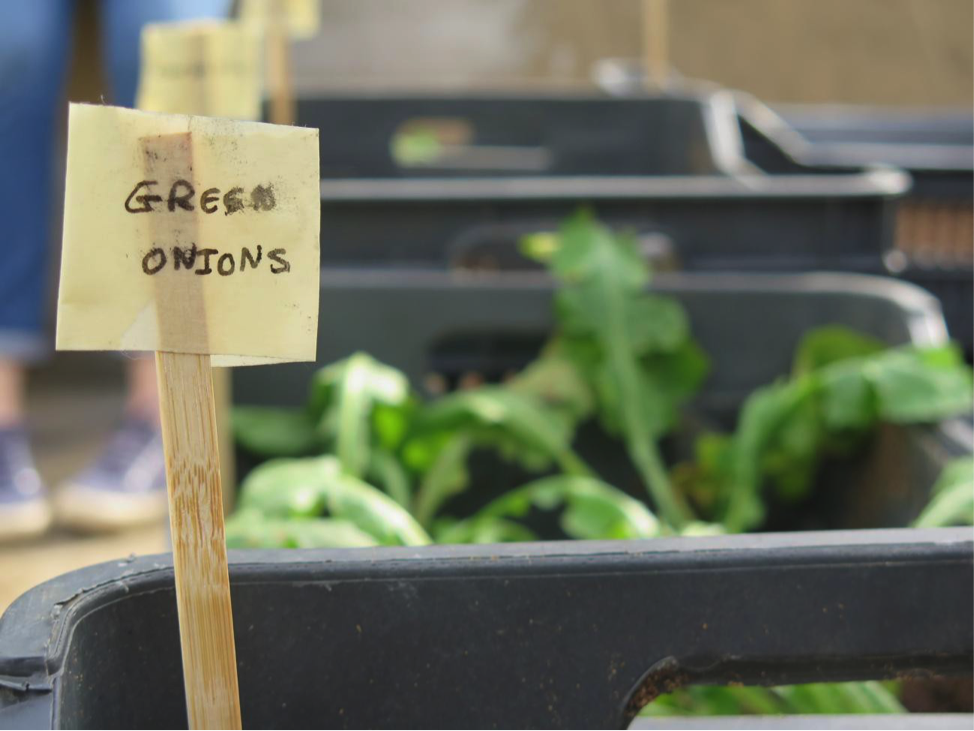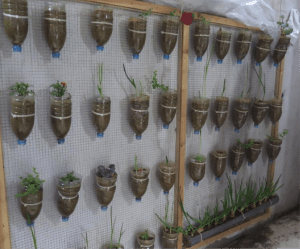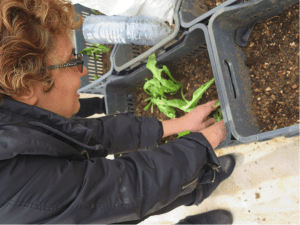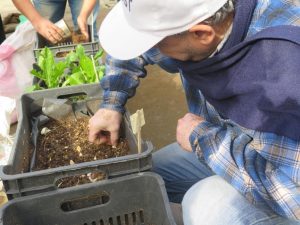Lebanon—Bourj Hammoud, a densely populated and diverse city on the outskirts of Beirut, is home to over 94,000 people from several ethnicities, nationalities, and religions. Living conditions in this suburb are very crowded and substandard. Commonly known through the years as the “hub for refugees”, Bourj Hammoud is now home to over 18,000 Syrians who have fled to Lebanon for a better life.
Most refugees have little to no source of sustainable income as their savings have been depleted—pushing them into increasingly impoverished neighborhoods and risky coping strategies like child labor, and exploitative, illegal, or demeaning work.
As a response to the Syrian refugee crisis, NEF’s work in Lebanon focuses on alleviating the economic burden the crisis has had on refugees and members of the host communities—prioritizing areas most affected like the poverty-stricken city of Bourj Hammoud.
With an aim to improve access to food and increase the economic resilience of at least 150 poor Syrian and Lebanese families over the coming months, NEF in partnership with the Cleveland H. Dodge Foundation, is focused on cost-effective solutions to achieve self-reliance through urban agriculture, skills training, financial literacy, and group savings.
In an effort to improve access to affordable nutrient-rich food, NEF is working with the American University of Beirut (AUB) and the YMCA to help vulnerable families grow fresh fruits and vegetables at home by providing training and start-up materials for container gardening, vertical gardening, and/or rooftop gardening.
AUB has led an evidence-based approach to test and ultimately utilize Urban Agriculture kits designed by experienced agriculture engineers from the Environment and Sustainable Development Unit (ESDU) at AUB. The kits include horizontal crates that can be placed on rooftops or in spacious balconies, or mounted balcony walls of the houses with no roof access. A composting bin accompanies every distributed kit to provide nutritious and natural compost to the plants and also decrease organic waste. Supplementary composting units recycle the organic food waste from the households’ kitchens into organic fertilizer for the plants. All of the kits are made from environmentally friendly recycled items such as plastic bottles and crates.
Four houses in Bourj Hammoud are piloting four unique types of urban agriculture kits in an effort to experiment the best method to use. Each kit’s efficiency, practicality, and crop yield will be monitored and assessed to determine the best method moving forward.
The very first woman to welcome the idea of urban agriculture into her home is Araxi. Araxi is a Syrian refugee who escaped the war three years ago. Like most Syrian refugees in Lebanon, she is struggling with insufficient financial resources as she and her husband try to put their two children through school, pay rent, and put food on the table.
After installation in early October, Araxi is already benefitting from the vertical garden which will yield enough onions, garlic, thyme, marjoram, and mint to use in her kitchen, reducing expenses she would otherwise incur purchasing these vegetables elsewhere.
“The kit was just recently installed, but the onion leaves are shooting, and my aunt and I already ate from them. On another note, the week I harvested the green onion leaves, I did not go to the supermarket to purchase onions or green onion leaves. In the long run, this will make a lot of difference.”
Liza, a widowed Lebanese woman born and raised in Bourj Hammoud, has witnessed all the rapid changes in her city across the years. Struggling to keep her daughter in boarding school, Liza is trying hard to decrease her expenses and increase her income in a sustainable way. Liza saw an opportunity and a ray of hope in the urban agriculture and small enterprise development components of NEF’s program.
With plenty of sun exposure and space, AUB’s agriculture specialists deemed Liza’s rooftop ideal for urban agriculture. After installation of the garden in late January, Liza will soon be harvesting swiss chard, chicory, radish, mint, onion, and garlic.
Gaby and Samira are a Lebanese married couple living in Bourj Hammoud with their two children. Gaby works part-time in a nearby school as a security guard, while Samira used to work at a coffee beanery until she became ill and her health prevented her from working. Given their difficult situation, the couple is trying hard to make ends meet—especially with Stephany, their 16 year-old daughter, who will be graduating next year and heading to college.
Gaby was very happy with the installation, also in late January, as it will provide healthy vegetables for his wife to consume. He said, “We do not come from agricultural backgrounds, but this is something I am very fond of, and we are looking forward to the harvest. It’s good to plant and eat at home, you know what you are eating, when you buy from the grocery stores, you surely do not know the source of the food item, but surely it’s chemically loaded from fertilizers and pesticides”. Gaby and Samira’s rooftop will soon be harvesting a wide variety of herbs and vegetables like onions, chicory, garlic, swiss chard, radish, beans, and mint.
The project team will conduct weekly visits to monitor the progress of the gardens and provide recommendations. Based on the results of the first set of urban agriculture installations, NEF will make any needed improvements and distribute the kits to the additional beneficiaries.






